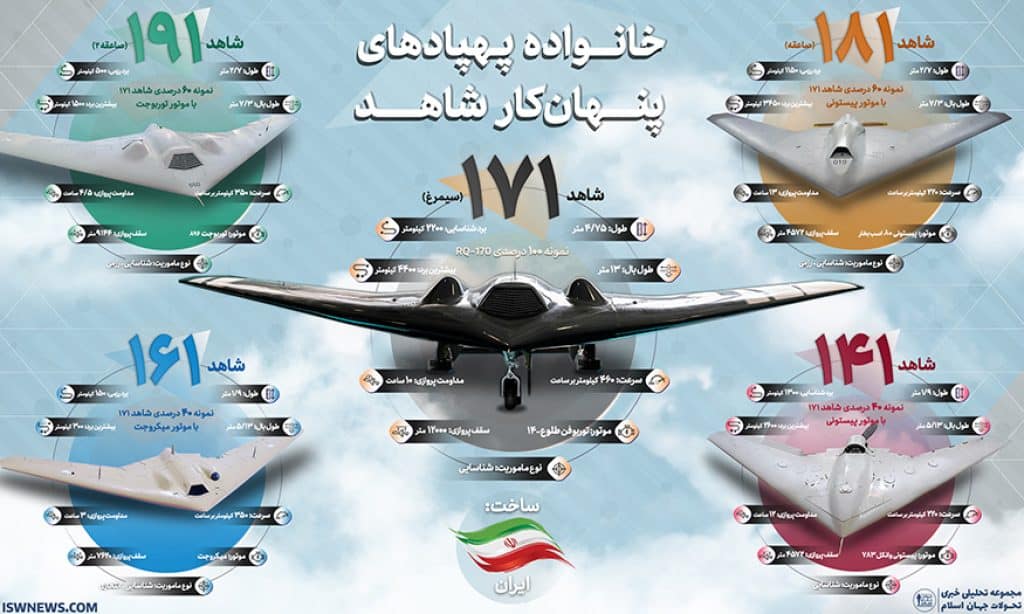
Iran and Armenia recently signed a $500 million arms deal, Iran International reported on July 24. The deal includes various military equipment Tehran will supply to Yerevan, including Shahed 136, Shahed 129, Shahed 197, and Mohajer drones, as well as air defense missile systems like the 3rd Khordad, Majid, 15th Khordad, and Arman.
A decade-long United Nations (UN) arms embargo that barred Iran from selling or purchasing conventional arms, including missiles, helicopters, and tanks, expired in 2020. Of the 14 UN Security Council member states, France, Germany, the United Kingdom, and eight others abstained during a vote on extending the embargo, while Russia and China opposed the measure. Despite the previous ban, Tehran had infiltrated African markets with massive amounts of illegal weapons in 2013. Post 2020, the Islamic Republic faces far fewer technical restrictions for engaging in the arms trade.
Iran and Armenia have signaled their growing ties in recent months with various high-level meetings discussing the implications of potential changes in the border between Azerbaijan and Armenia. In an early May meeting with Armenian Prime Minister Nikol Pashinyan, Islamic Republic Supreme Leader Ali Khamenei highlighted the “sensitivities surrounding border issues related to Armenia.” Iranian Parliament Speaker Mohammad Bagher Ghalibaf echoed Khamenei’s remark during a July 11 meeting with his Armenian counterpart, stating that “any changes to the borders of our neighboring countries is our redline.”
Tehran is likely concerned with Azerbaijan’s claim over the Zangezur Corridor. This transport route would provide Azerbaijan access to the Nakhchivan Autonomous Republic, an exclave of Azerbaijan, without Armenian checkpoints. The corridor could also connect Turkey to mainland Azerbaijan, and the two countries aim to utilize it as a transport and energy route connecting Azerbaijan to Europe. This situation would also facilitate the supply of Azerbaijani gas to Nakhchivan via Turkey, thereby eliminating the exclave’s reliance on Iran. While Iran and Turkey are more strategic competitors/rivals than adversaries, Tehran is skeptical of Istanbul’s “Pan-Turkish” ambitions that also threaten Iranian sovereignty.
From a military standpoint, the Islamic Republic is filling a void left by Russia. After Russia’s reluctance to support Armenia during the latest escalations between Armenia and Azerbaijan, Yerevan announced plans to formally withdraw from the Moscow-led Collective Security Treaty Organization.
In addition, Armenia’s decision to purchase Iranian drones also comes shortly after its foreign minister attended a North Atlantic Treaty Organization (NATO) summit in early July, suggesting that Yerevan did not receive the reassurances it needed from the West. In addition to seeking military and diplomatic support from the US during the recent escalations, Armenia has been urging NATO to pressure Turkey into taking a step back from supplying drones to Baku and from using its F-16 fleet to target Armenian territory. Iran evidently could not pass on this lucrative opportunity to exercise influence and send a message to Azerbaijan.
The recent deal also enables Iran to counter Israel’s relationship with Azerbaijan, as Tehran’s disdain for Israel extends to countries with ties to Tel Aviv. Armenia recognized Palestine as a state right before concluding the latest arms agreement with Tehran. And given the crucial role of Israeli drones in helping Azerbaijani advances during the previous round of the Nagorno-Karabakh conflict in 2020, Armenia realized this major gap in its defense industry. Yerevan can now pose a serious threat to Azerbaijan, while Iran backs up its stance against countries receiving Israeli technology.







